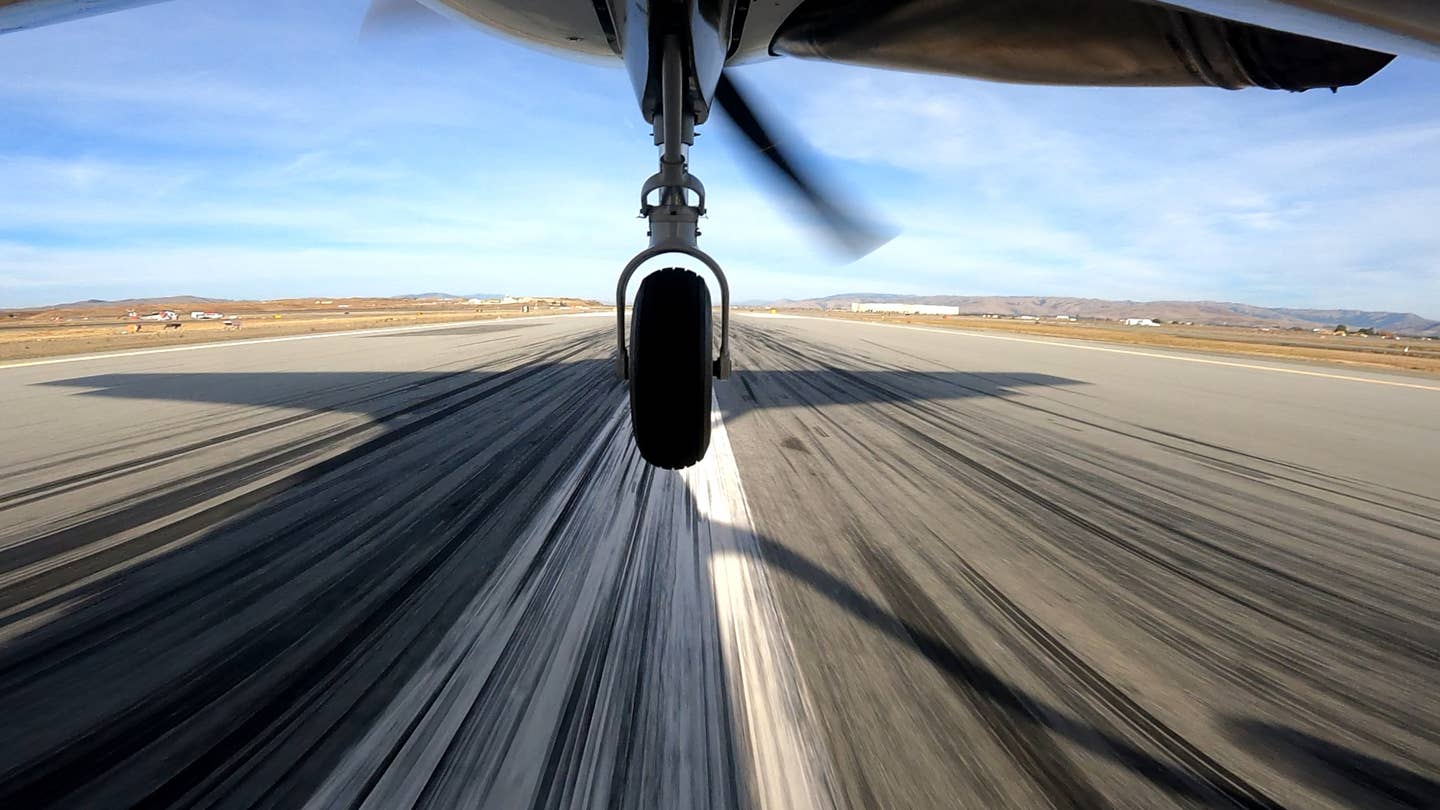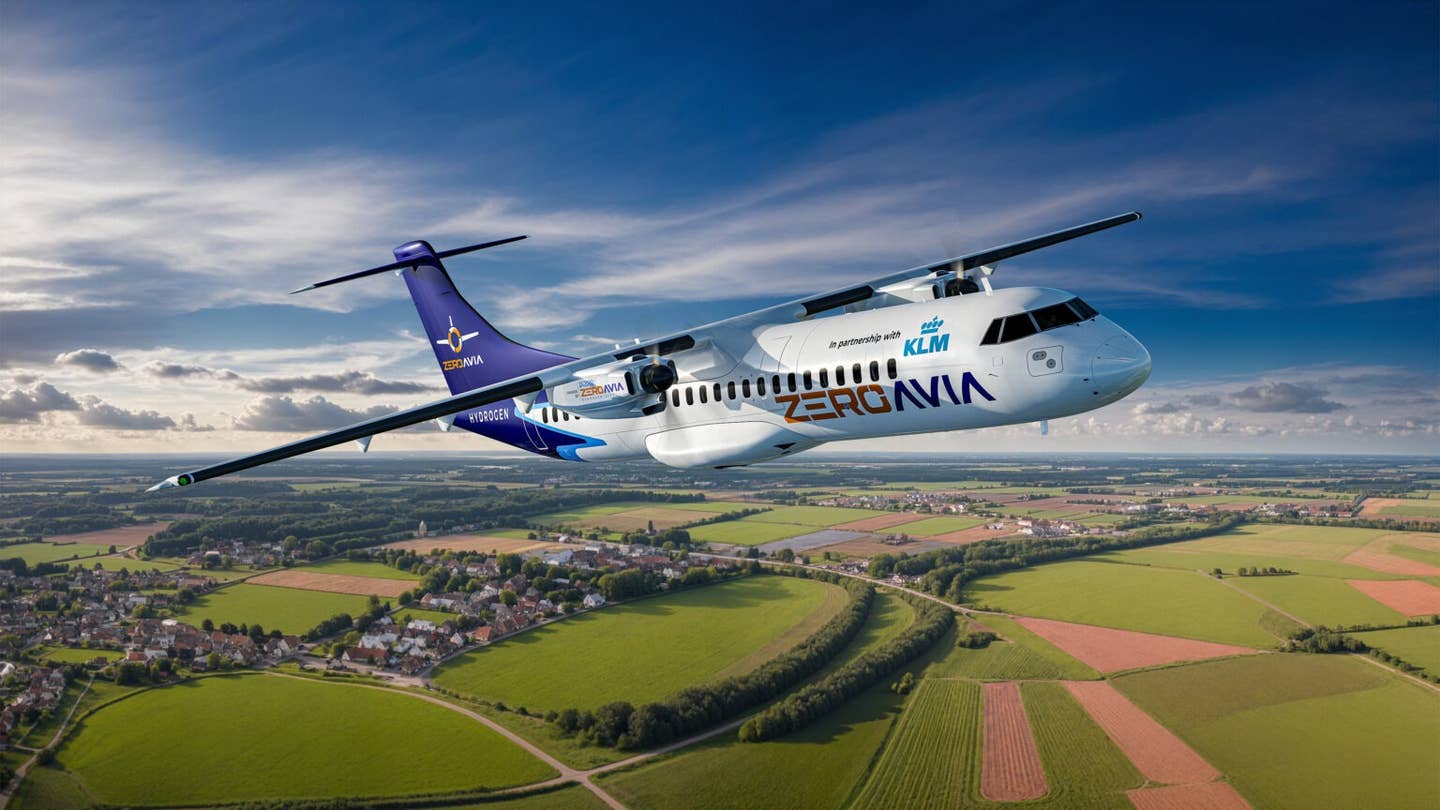FAA, Reliable Robotics Agree on Testing Criteria for Automated Aircraft System
The firm intends to retrofit Cessna 208B Caravans and other aircraft with technology that reduces pilot-induced accidents.

Reliable Robotics completed the first flight of a remotely piloted Cessna Caravan with no one on board in December. [Courtesy: Reliable Robotics]
A company that retrofits Cessna 208B Caravans with automated systems—and which flew the first such aircraft with no one on board in December—announced the FAA has accepted the requirements for its advanced aircraft navigation and autopilot systems, which help automate all phases of flight from taxi to takeoff and landing.
Reliable Robotics, which completed the landmark flight using its remotely operated aircraft system (ROAS), claims to be the first in the industry to agree on a testing and analysis campaign for these systems with the FAA. The company will demonstrate how its ROAS aligns with the regulator’s safety and performance requirements for operations in the contiguous U.S. and Alaska.
“We are immensely pleased with the FAA and the positive working relationship we’ve established together—it is clear that we share the common goal of improving aircraft safety through automation,” said Chris Schulenberg, certification program manager at Reliable.
Reliable’s ROAS is intended to reduce or eliminate accidents due to pilot error or impairment, such as controlled flight into terrain (CFIT) and loss of control in flight (LOC-I), which it says account for the bulk of fatal aviation accidents. Initially, the firm will supplement personnel in the cockpit rather than replace them. It intends for operations to include a single onboard pilot to perform “abnormal procedures.”
The means of compliance for assessing the ROAS’ navigation and autopilot systems have been accepted through the FAA’s issue paper process. The blueprint sets out criteria for approving the technology and comprises a portion of the company’s supplemental type certification (STC) process.
That campaign kicked off in 2022, when the FAA approved Reliable’s G-1 issue paper. The G-1 defines the certification basis for its STC on the Cessna Caravan, including navigation and autopilot systems. The company’s certification plan for continuous autopilot engagement—a road map that uses existing FAA regulations and processes for normal and transport category aircraft, with no special conditions or exemptions—was accepted in June.
The regulator has also conducted several test flights with Reliable through its Urban Air Mobility (UAM) Airspace Management Demonstration program, culminating in its signoff on December’s historic flight. The Caravan used in that demonstration—a loan from potential customer FedEx—is one of many Reliable intends to retrofit with its automated tech.
The company is working with both Textron Aviation and Textron eAviation—the sustainable flight subsidiary of Textron—to install its ROAS onto the popular model. Textron has delivered more than 3,000 Caravans, making it one of the most widely used turboprops in the world. Reliable’s remotely piloted Caravan could introduce same- or next-day shipments of time-sensitive deliveries to locations currently served by piloted models.
However, the firm’s tech is also designed to be aircraft agnostic. It could one day be equipped on other Textron designs or those of different manufacturers. The company says this could even include cargo aircraft designed for 3,000-plus-pound payloads—small cargo aircraft are a possible candidate for early autonomous operations, with low risk due to the lack of passengers.
In addition to the FAA, Reliable has completed watershed technology demonstrations with NASA and AFWERX, the innovation arm of the U.S. Air Force. In January, it was awarded military airworthiness approval to begin further flight testing and perform operational missions for the Air Force using remotely piloted aircraft.
Like this story? We think you'll also like the Future of FLYING newsletter sent every Thursday afternoon. Sign up now.

Subscribe to Our Newsletter
Get the latest FLYING stories delivered directly to your inbox






